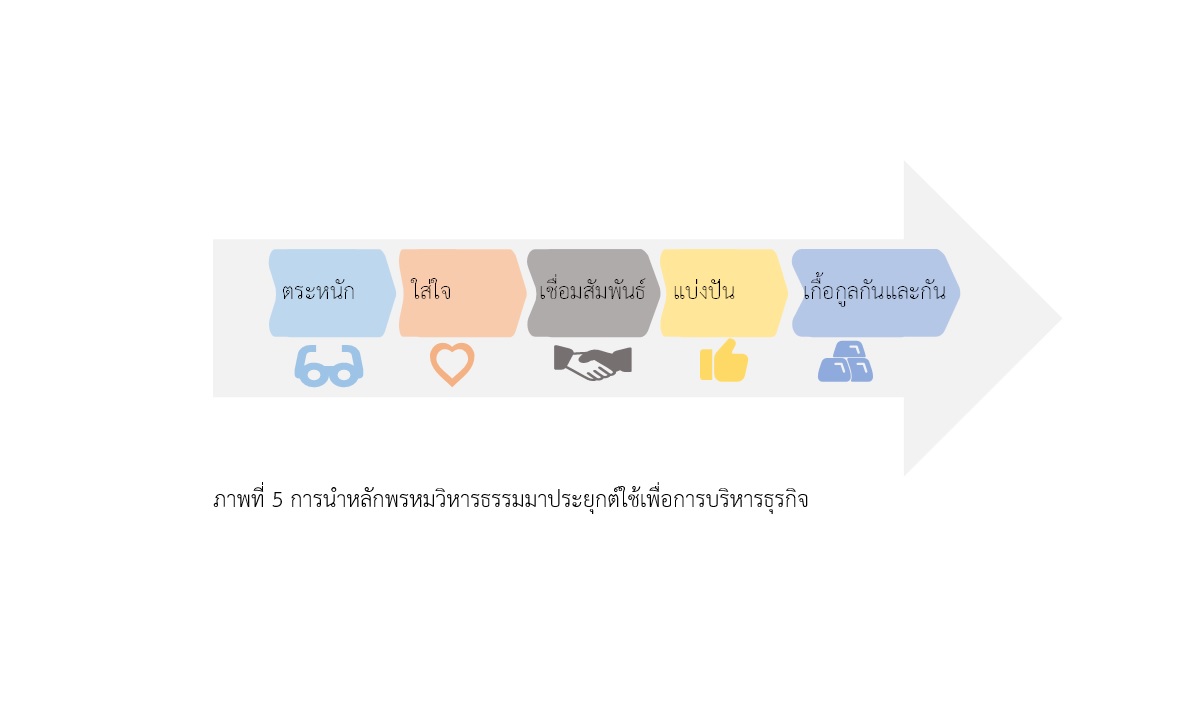Four Sublime States of Mind for Business Management
Keywords:
Four Sublime States of Mind, Business Management, BusinessAbstract
This academic article aims to study and present the principles of ethical leadership for business management. It begins by examining the components of ethical leadership and the meaning of each component. It explores the philosophical aspects of ethical leadership, followed by the study of fundamental business management principles. The intention is to analyze and present the application of ethical leadership principles in business management. The study concludes with a process-oriented model that leads to practical application. The findings reveal that ethical leadership refers to the virtuous essence of ethics, consisting of four components: Metta (loving-kindness), Karuna (compassion), Mudita (sympathetic joy), and Upekkha (equanimity). The philosophy behind ethical leadership stems from the Buddha's wisdom and the study of fundamental business management principles. General business management involves planning, organizing, staffing, coordinating, and controlling resources to achieve business objectives, typically based on material or profit-oriented values. However, for Buddhist-inspired business management, the foundation lies in the mind, enriched with ethical principles. Applying ethical leadership in business begins with self-awareness, care for oneself, consideration for others, and ensuring the well-being of the organization. It emphasizes the importance of relationships, built on love and understanding, and promotes sharing and generosity for mutual benefit. Ultimately, this approach fosters a sense of community and collaboration, resulting in shared benefits for individuals and the overall creative and sharing business environment.
References
การศาสนา, กรม. (2525). พระไตรปิฎกภาษาไทย ฉบับหลวง. กรุงเทพฯ : กรมการศาสนา.
พักตร์ผจง วัฒนสินธุ์. (2559). จริยธรรมและการบริหารธุรกิจ. กรุงเทพฯ : โรงพิมพ์แห่งจุฬาลงกรณ์มหาวิทยาลัย.
สิรินทร์ กันยาวิริยะ, ชิสา กันยาวิริยะ และ เมธา หริมเทพาธิป. (2565). การบริหารคนตามหลักพุทธธรรมสำหรับนักธุรกิจ. วารสารวิจัยธรรมศึกษา, 5(2), 240-249.
________. (2564). การบริหารธุรกิจตามหลักพรหมวิหารธรรม : การศึกษาเชิงวิเคราะห์ วิจักษ์ และวิธาน. ดุษฎีนิพนธ์ปรัชญาดุษฎีบัณฑิต. บัณฑิตวิทยาลัย : มหาวิทยาลัยราชภัฏสวนสุนันทา.

Downloads
Published
How to Cite
Issue
Section
License

This work is licensed under a Creative Commons Attribution-NonCommercial-NoDerivatives 4.0 International License.



